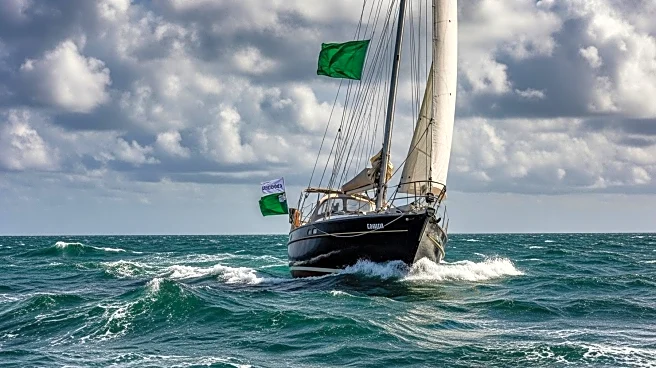What's Happening?
Greta Thunberg's aid flotilla, which set sail from Barcelona to Gaza, was forced to return to port due to stormy weather. The flotilla, consisting of 20 boats, was part of what organizers called the 'largest solidarity mission' in history. The mission faced challenges from 35 mph winds, prompting a sea trial and subsequent return to port to avoid complications with smaller boats. The flotilla's departure was delayed, with no new schedule announced. This mission follows a previous attempt by Thunberg to reach Gaza, which was intercepted by the Israeli navy. Israel has expressed intentions to detain activists in harsh conditions, dismissing the mission as a propaganda stunt.
Why It's Important?
The flotilla's mission highlights ongoing tensions between Israel and activists attempting to deliver aid to Gaza. Israel's response underscores its stance on such missions, viewing them as support for Hamas rather than humanitarian efforts. The involvement of high-profile figures like Greta Thunberg and the international attention it garners could influence public opinion and diplomatic relations. The mission's delay due to weather also emphasizes the logistical challenges faced by activists in such endeavors. The situation reflects broader geopolitical dynamics in the region, with potential implications for international relations and humanitarian efforts.
What's Next?
The flotilla organizers have not announced a new departure date, but the mission is expected to continue once weather conditions improve. Israel's government may continue to prepare for potential interception and detention of activists. The international community, including supporters of the flotilla, may respond with increased advocacy or diplomatic pressure. The outcome of this mission could influence future humanitarian efforts and the strategies employed by activists in similar situations.









